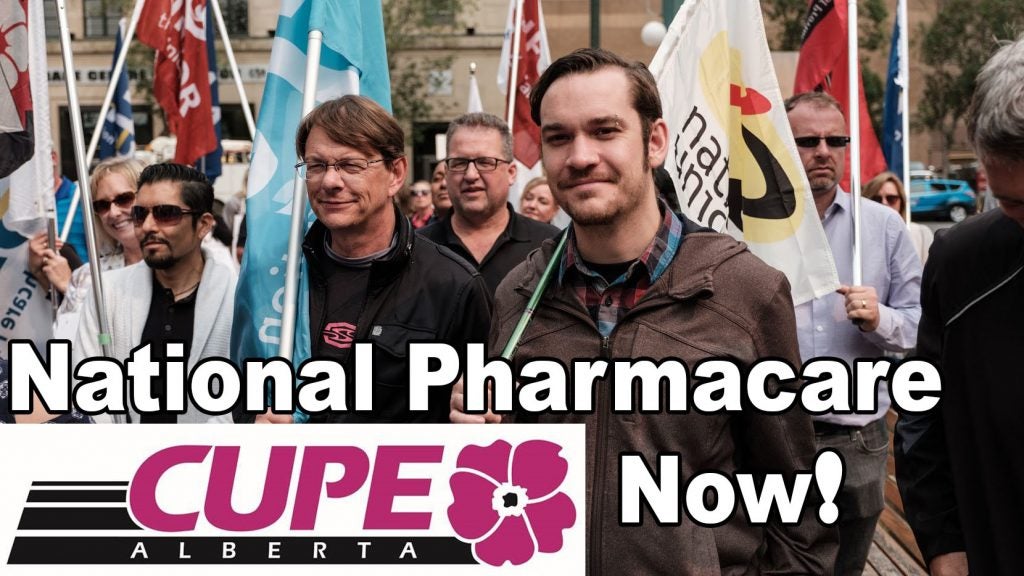 CUPE Alberta was pleased to join with Friends of Medicare and call on the Premiers to adopt a National Pharmacare strategy during the most recent meeting of first ministers in Edmonton.
CUPE Alberta was pleased to join with Friends of Medicare and call on the Premiers to adopt a National Pharmacare strategy during the most recent meeting of first ministers in Edmonton.
A universal public prescription drug program would be a progressive and positive change to our current patchwork system. Universal Pharmacare would leave no Canadian behind, and, almost as importantly, would significantly reduce costs to governments, to employers and to workers. That is the conclusion of a recent in-depth analysis done by CUPE.
Our current prescription drug approach is based on provincial plans with wildly different – and most-often minimal – coverage on one hand, and on the other, a hodgepodge, “hybrid” system where public and private insurance coexist. This is shown to be highly inefficient.

Last year, CUPE presented a submission to the House of Commons’ Standing Committee on Health. The Committee has been studying the development of a national Pharmacare program.
The submission clearly and unequivocally shows that private insurance plans have three major downsides. First, they are not available to all. Low-wage, part-time and precarious workers – who typically are not covered by a workplace plan – are especially at risk. Second, the drug costs are rising quickly on private insurers and these costs are almost entirely shifted on the backs of workers. Third, the high number of public and private insurers reduces the capacity to save money through bulk purchasing of drugs.
All these problems would be resolved with a public system, rather than the patchwork system we have in Canada now. Public solutions can work better and save money.
Some statistics:
Households who often cannot afford to buy prescribed medication: 25 per cent.
A comprehensive Pharmacare program, similar to New Zealand’s, could save Canadians almost $10 billion a year.
